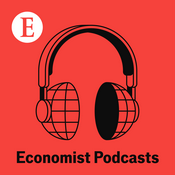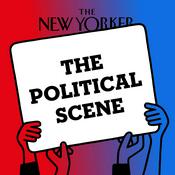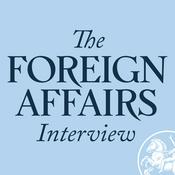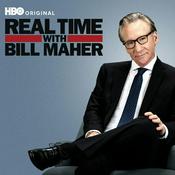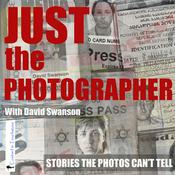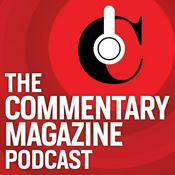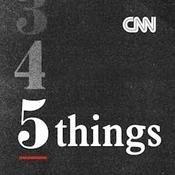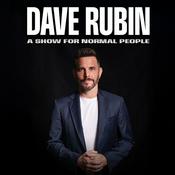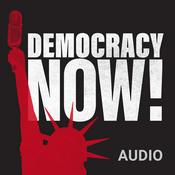54 episodes
- Today we turn to a YouTube video that has resurfaced with renewed relevance: “Israel Does Not Target the Palestinian Civilians.”
The video, originally uploaded more than a decade ago, challenges one of Israel’s most frequently repeated claims that its military avoids harming civilians.
Through archival footage and documented incidents, it highlights a long‑standing pattern of civilian casualties in Gaza and the West Bank.
It also exposes the gap between official Israeli messaging and the findings of journalists and human rights organizations.
Investigations cited in related reporting show that the majority of Palestinians killed in major Israeli offensives have been civilians.
This includes Christians, who make up a small but historic community in Bethlehem, Beit Jala, Jerusalem, and Gaza.
The video’s context is especially important today, as Palestinian Christian leaders continue to report harassment, land seizures, and restrictions on worship imposed by Israeli authorities.
Church properties have faced repeated attacks by extremist settlers, and clergy have documented rising intimidation in occupied East Jerusalem.
In Bethlehem, the separation wall cuts Christian neighborhoods off from Jerusalem, limiting access to holy sites and economic life.
These realities contradict the narrative that Christians in Palestine enjoy freedom under Israeli control.
The video underscores how official statements often obscure the lived experiences of both Muslim and Christian Palestinians.
It shows how language phrases like “precision strikes” or “human shields” is used to deflect accountability for civilian harm.
At the same time, it documents the destruction of homes, schools, and churches that has shaped Palestinian life for generations.
The contrast between rhetoric and reality is stark.
The video argues that the claim “Israel does not target civilians” functions more as a political talking point than an accurate description of military conduct.
It invites viewers to examine the evidence themselves rather than rely on official narratives.
It also highlights the importance of independent documentation in conflict zones.
For many, this video serves as an early record of a pattern that continues today.
It is not just a historical clip, it is a reminder of how narratives are constructed, repeated, and used to justify ongoing harm.
And it challenges us to ask: when the evidence contradicts the rhetoric, whose truth do we accept?
This is This Week in Palestine. - When the Story Becomes the Weapon
Today, we open with the reality the world keeps trying to rename. On Saturday, Israeli airstrikes across Gaza killed at least thirty‑two Palestinians—lives added to the more than five hundred already lost during what officials insisted on calling a “ceasefire.” A ceasefire in name only. One that never reached the families sheltering in shattered buildings, never reached the children sleeping under tarps, never reached the wounded waiting for medical care that no longer exists.
And then, on Monday, the Rafah crossing to Egypt was partially opened, framed as a gesture of humanitarian relief. But Israel announced it would allow only one hundred and fifty Palestinians to leave each day. As one emergency medic put it, “At this rate, it would take over a year for the twenty thousand awaiting evacuation to leave.” A year for people who do not have a year. A year for people who may not have a week.
This is the landscape as Israel’s assault—what many scholars, jurists, and human rights organizations have described as genocide—enters its twenty‑eighth month. Twenty‑eight months of siege, bombardment, starvation, displacement, and the systematic destruction of a society. Twenty‑eight months of a world watching, calculating, debating, and too often doing nothing.
But this violence is not sustained by military force alone. It is upheld by political alliances, diplomatic cover, and—perhaps most powerfully—by the stories told about it. Stories that shape public opinion. Stories that justify policy. Stories that turn victims into threats and atrocities into “self‑defense.”
And nowhere has that complicity been clearer than in the Western media ecosystem. One of the most glaring examples is the now‑debunked New York Times story “Screams Without Words.” Published with dramatic flair and presented as investigative journalism, it claimed to uncover evidence of systematic sexual violence committed by Palestinians on October 7th. The story was immediately amplified by U.S. officials and used to justify the continued flow of weapons, funding, and diplomatic protection for Israel’s actions. It became a talking point, a rallying cry, a moral shield for the slaughter of tens of thousands of Palestinian men, women, and children.
But the story wasn’t true. Not partially true. Not misinterpreted. It collapsed under scrutiny—built on unverifiable testimonies, politically motivated sources, and evidence that contradicted the narrative. Internal fact‑checkers were sidelined. Doubts were ignored. And once the story was out, it spread unchecked: repeated on cable news, cited by politicians, weaponized by commentators, and absorbed by the public as fact.
This is how propaganda works today—not through state‑run newspapers, but through respected institutions that carry the veneer of credibility. And when those institutions fail, the consequences are not abstract. They are measured in lives. While false claims circulated, Gaza was being bombed. Families were being buried under rubble. Hospitals were being destroyed. Children were starving. Entire neighborhoods were being erased.
This is not just a media critique. This is about the cost of a lie.
Today, we examine how narratives are constructed, how they travel, and how they are used to justify the unjustifiable. We look at the machinery behind the headlines, the politics behind the storytelling, and the human beings erased in the process.
Stay with us,
as we pull apart the narratives that shield power,
as we center the voices long pushed aside,
and as we insist on truth in a moment built on distortion.
This is This Week in Palestine. - Today, we open with a conversation that cuts straight through the noise. Across social media and mainstream platforms, polished narratives about Israel’s history circulate with confidence, often delivered by high‑profile commentators who speak with certainty but not always with accuracy. One of the loudest among them is Ben Shapiro, whose claims about the origins of the conflict, the Nakba, and Palestinian history have reached millions.
But reach does not equal truth.
And that brings us to Stephen Kapos.
Kapos is a Holocaust survivor, a man who lived through the machinery of fascism and carries the memory of what unchecked violence and dehumanization can do. His voice is grounded in lived experience, in moral clarity, and in a lifelong commitment to speaking out when injustice repeats its patterns. When he talks about Gaza, he speaks not from ideology, but from the memory of what happens when the world looks away.
Shapiro, on the other hand, speaks from behind a microphone, shaping narratives that often blur history with selective interpretation. Kapos speaks from the weight of survival, insisting that truth must be protected from distortion. One deals in confident commentary. The other deals in memory, evidence, and the moral responsibility that comes with witnessing humanity at its worst.
In the video “Debunking Every Lie Shapiro Told on Israel’s History,” researchers and historians take Shapiro’s claims apart one by one, grounding their responses in documented history, archival evidence, and lived experience. They challenge the myths, expose the distortions, and remind us that the story of this land cannot be reduced to slogans or soundbites.
Today, we bring that same spirit of clarity into our own space.
We examine how narratives are shaped, how misinformation spreads, and why historical truth matters now more than ever. Because understanding the past is not an academic exercise. It is essential to understanding the violence unfolding today, the displacement of millions, and the struggle for justice that continues despite every attempt to erase it.
So, stay with us,
as we pull apart the talking points,
as we return to the historical record,
and as we center the voices who refuse to let truth be rewritten.
Welcome to This Week in Palestine. - What we are witnessing today is a moment many anticipated, and one that others are only now beginning to grasp. Gaza, in the eyes of powerful political and financial actors, is being treated less like a home for two million people and more like a prize handed to the highest bidder. The narrative emerging from the Trump circle, echoed by the wealthy investors around him, frames Gaza as a future development project. According to the plan associated with Jared Kushner, reconstruction will begin soon, not for the people who lived through the devastation, but for those who see opportunity in the ruins.
Kushner’s proposal imagines a thirty‑day timeline in which peace will supposedly become visible between Israel and the Palestinians. It is presented with remarkable confidence, as though decades of occupation, displacement, trauma, and unresolved injustice can be swept aside with investment portfolios and construction contracts. One is left wondering what world this vision belongs to, because it bears little resemblance to the world Palestinians inhabit, or the world observers see unfolding on the ground.
So let us return to Gaza itself, to the people, the land, and the reality shaped by war, siege, and unimaginable loss. In the future imagined by these investors, Gaza becomes a kind of paradise, a fresh economic frontier, a blank slate ready for luxury development and international capital. But this imagined paradise is not for the Palestinians who lived there. As many have noted, the plan does not envision their return. The people whose homes were destroyed, whose families were displaced, whose lives were uprooted, are not part of the blueprint.
This raises a profound question. If Gaza is rebuilt without its people, and if the land is handed over to outside investors who will govern it, what exactly are we looking at? Some have asked whether this represents a new form of colonialism, one wrapped in the language of development and peace. It is a question worth considering, because the implications are enormous.
Critics describe the structure of the plan in stark terms. United States taxpayer money flows to Israel. Israel uses that support to wage war in Gaza. Gaza is destroyed. Palestinians are killed or displaced. And then, once the land is emptied, investors step in to rebuild a Gaza without Palestinians. A Gaza redesigned for profit, not for the people who lived there for generations. This is what is being presented to the world as a peace plan.
Even Netanyahu is not happy that the envisioned Gaza would not be under his government’s control. When even political leaders closely aligned with the project raise concerns, it reveals something about the scale and ambition of what is being proposed.
Today, we bring you a conversation that cuts through the slogans, the marketing, and the political theater. It is a discussion between two of the most incisive voices on these issues, Norman Finkelstein and Chris Hedges. Their conversation on The Chris Hedges Report, titled “Deconstructing Trump’s Peace Plan for Gaza,” examines the assumptions, the power dynamics, and the consequences embedded in this proposal.
Finkelstein, known for his historical analysis and his critique of policy, explores how the plan disregards international law, erases Palestinian rights, and reframes occupation as a benevolent project. Hedges, drawing on his background in war reporting and political commentary, pushes the conversation further, looking at how narratives of peace are often used to mask systems of domination and dispossession.
Together, they break down the core elements of this so‑called peace plan, revealing the economic motives, political calculations, and overlooked human cost. They show how language flips aggressors into victims, how destruction is sold as opportunity, and how those who suffer most are pushed out of the discussion. TWIP-260118 When Words Become Weapons: How Antisemitism Is Used to Silence Anti Zionism
2026/1/18 | 1h 22 mins.We all agree that antisemitism is wrong. There is no debate on that point. Hatred toward Jewish people, or toward any community because of who they are, is unacceptable. It is a moral failure and a danger that must be confronted wherever it appears. But acknowledging that truth does not mean ignoring how the word antisemitism is sometimes used in ways that have nothing to do with protecting Jewish communities. Increasingly, the accusation is deployed as a political tool, a way to silence criticism of Israeli government policies and to shut down conversations about Palestinian rights.
This tactic works because the word carries enormous emotional weight. It evokes centuries of trauma and persecution. It demands seriousness. And because of that, it can be used to end a conversation before it begins. Raise a question about human rights and you are accused of antisemitism. Express sorrow for civilians in Gaza and you are accused of antisemitism. Criticize settlement expansion or military occupation and you are accused of antisemitism. Challenge a political leader who supports Israeli policy and you are accused of antisemitism. The accusation appears instantly, often without any engagement with the substance of the critique.
But antisemitism and anti-Zionism are not the same. Antisemitism is hatred toward Jewish people. Anti Zionism is opposition to a political ideology and the state policies built upon it. One targets people for who they are. The other critiques systems of power and governance. When these two concepts are deliberately blurred, the consequences are serious. The misuse of the term weakens the fight against real antisemitism by stretching the definition so far that it loses meaning. It becomes harder to identify genuine threats and harder to confront actual bigotry.
This tactic also silences Palestinians and those who stand with them. When empathy becomes suspect and when speaking about human rights becomes a liability, entire communities are pushed out of the conversation. Their stories are dismissed. Their suffering is minimized. Their voices are erased. And beyond that, a climate of fear takes hold. Students fear speaking on campus. Journalists fear asking questions. Ordinary people fear posting online. The result is not safety. The result is silence.
Silence in the face of injustice has never been neutral. It allows harm to continue without challenge. It protects power rather than people. And it shifts the focus away from the lived experiences of Palestinians and toward policing language instead of addressing reality. The conversation becomes about vocabulary rather than human rights. It becomes about accusations rather than accountability.
Yet despite these pressures, the world is changing. More people are beginning to understand the difference between antisemitism and anti-Zionism. They are learning that opposing a government’s actions is not the same as opposing a people. They are recognizing that solidarity with Palestinians is not an attack on Jewish identity. They are seeing that naming injustice is not hatred. It is responsibility.
Today, the task before us is clarity. If we are to confront real antisemitism, we must protect the integrity of the word. If we are to pursue justice, we must allow space for truth. And if we are to build a future rooted in dignity, we must refuse to let language be used as a shield against accountability. The question now is whether the world will continue to accept this confusion or whether it will finally demand honesty and courage in the conversations that matter most.
More News podcasts
Trending News podcasts
About This Week In Palestine
"This podcast sheds light on the daily struggles faced by Palestinians since the loss of their homeland. We bring you in-depth discussions and factual insights into the suffering endured by the indigenous people under a fascist state that continues to expand and claim their lands."
Podcast websiteListen to This Week In Palestine, Global News Podcast and many other podcasts from around the world with the radio.net app
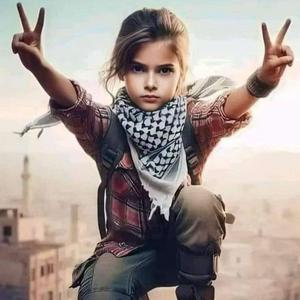
Get the free radio.net app
- Stations and podcasts to bookmark
- Stream via Wi-Fi or Bluetooth
- Supports Carplay & Android Auto
- Many other app features
Get the free radio.net app
- Stations and podcasts to bookmark
- Stream via Wi-Fi or Bluetooth
- Supports Carplay & Android Auto
- Many other app features


This Week In Palestine
Scan code,
download the app,
start listening.
download the app,
start listening.


